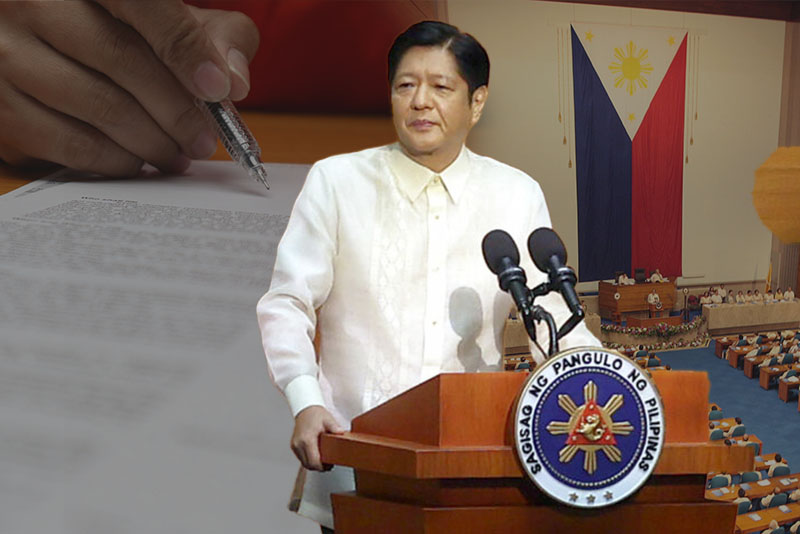Atty. Rodel Unciano discusses the new administration's upcoming priorities in tax reforms and their importance for foreign and local businesses.

PBBM’s Tax Roadmap
By Atty Rodel C. Unciano
"We need a law that ensures taxpayer’s right to pay no more than the correct amount of tax, right to due process and speedy disposition of tax investigation cases, right to a fair and just tax system, right to quality tax education, right to consistent and transparent application of laws, and right to be protected against malicious, excessive and wrongful assessment of taxes, among others."
In his first State of the Nation Address (SONA), President Ferdinand “Bongbong” Marcos Jr. identified his administration’s priorities in tax reforms, including the enactment into law of the Real Property Valuation Reform Bill and the Passive Income and Financial Intermediary Taxation Act (PIFITA). The President likewise declared his support for the imposition of value-added tax on digital service providers and simplified tax compliance procedures to promote ease of paying taxes.
 The Real Property Valuation Reform and the Passive Income and Financial Intermediary Taxation Act were parts of the tax reform package of the previous administration but didn’t make it to the finish line. Digital taxation and ease of paying taxes bills were also filed during the 18th Congress but both bills failed to become a law.
The Real Property Valuation Reform and the Passive Income and Financial Intermediary Taxation Act were parts of the tax reform package of the previous administration but didn’t make it to the finish line. Digital taxation and ease of paying taxes bills were also filed during the 18th Congress but both bills failed to become a law.
The Real Property Valuation Reform Bill sought to provide for the establishment of real property values and valuation standards across the country. To date, valuation of real property in the Philippines has become a perennial concern to many taxpayers especially in times of payment of taxes on transactions involving real property, apparently because of the cumbersome determination of the fair market value of real property currently in place, which is a key determinant in real property taxes and other applicable taxes in the disposition of real property. It is therefore necessary to enact a just, equitable, impartial, and nationally consistent real property valuation system based on internationally accepted valuation standards, concepts, principles, and practices.
PIFITA, which was conceived as the package 4 of the previous administration’s tax reform bill, sought to reform the taxation of capital income and financial services by redesigning the financial sector taxation into simpler, fairer, more efficient and a revenue neutral tax system. It was designed to significantly reduce the number of tax rates on financial services and aimed at harmonizing the tax rates on interest, dividends, capital gains, and the business taxes imposed on financial intermediaries. The passage of the bill into law is certainly a must in order to make the Philippines more competitive in attracting investments.
The digital taxation bill, which seeks to set rules for the taxability of digital transactions, is also a welcome development especially in this digital age where various transactions are now made via online platforms. It is thus necessary to set out clear rules on these transactions for guidance of those in the digital business. While we have rules currently in place, there are some ambiguities which must be best clarified through legislative enactment.
Also, the passage into law of the Ease of Paying Taxes Act will certainly improve tax compliance as it will simplify compliance procedures in tax administration and tax compliance of taxpayers. As filed in the 18th Congress, the bill seeks to establish reasonable criteria for classifying taxpayers, taking into consideration the taxpayer’s capacity to comply with tax rules and regulations, the amount and type of tax paid, the gross sales and/or receipts of the taxpayer, inflation, volume of business, wage and employment levels, and similar economic and financial factors.
For ease of compliance to tax rules and regulations, simplified tax returns and processes shall be implemented for taxpayers not classified as medium or large. This is in recognition of the varying ability of taxpayers to settle their tax obligations.
Another important legislation which the 18th Congress failed to pass into law and which was not mentioned in PBBM’s SONA is the Taxpayer’s Bill of Rights Act, which was proposed to strengthen the taxpayer’s bill of rights. I humbly suggest that this must be revisited as well and passed into a law.
In tax investigation cases, it is undisputed that our existing tax laws and regulations provide taxpayers some sort of remedies in contesting such assessment cases. However, our laws protecting taxpayers’ rights seem to be inadequate.
We need a law that ensures taxpayer’s right to pay no more than the correct amount of tax, right to due process and speedy disposition of tax investigation cases, right to a fair and just tax system, right to quality tax education, right to consistent and transparent application of laws, and right to be protected against malicious, excessive and wrongful assessment of taxes, among others.
Indeed, taxpayer’s bill of rights should be given paramount consideration in the administration and collection of taxes. If the State can ensure that taxpayer’s rights are guaranteed, in the end, it will surely find it easy to collect much needed revenues to defray its expenses.
The author is a partner of Du-Baladad and Associates Law Offices (BDB Law), a member-firm of WTS Global.
The article is for general information only and is not intended, nor should be construed as a substitute for tax, legal or financial advice son any specific matter. Applicability of this article to any actual or particular tax or legal issue should be supported therefore by a professional study or advice. If you have any comments or questions concerning the article, you may e-mail the author at This email address is being protected from spambots. You need JavaScript enabled to view it. or call 8403-2001 local 140.



